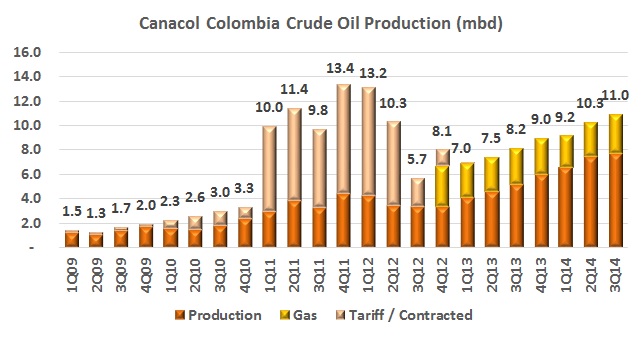The Cartagena Refinery (Reficar) project is nearly ready, but not finished yet. The general advance is at 97.6% and construction is at 92.7%. Plus authorities now say that a parallel project to expand the Barrancabermeja Refinery must wait in line for Reficar to finish first.
Colombia remains an attractive investment destination for international hydrocarbons firms says the Ministry of Mines and Energy (MinMinas) Tomás González, who also touched on the role of oil in government finances and the balance of reserves to production.
Parex has encountered press resistance to its “Rumba” exploration project in Llanos 26, while NGO’s have nearly received their goal of on-line signatures for a petition to support anti-fracking measures, and an armadillo conservation program shows results. These and other environmental stories in our routine summary.

Canacol Energy (TSX:CNE) reported an increase in production and revenue growth for its first quarter of the 2015 fiscal year. However like much of the industry, costs and the price of oil have taken a toll.
Supporters of prior consultation processes held a debate in Colombia’s senate, questioning why ministers and the President Juan Manuel Santos himself have “demonized” the process as being solely a way for communities to take advantage of projects taking place near their borders.
The count actually decreased to 37 this week, around recent and long-term averages. However, guerrilla-initiated incidents were up, the Farc launched an audacious attack on a Pacific Island and the kidnapped general still has not been released.
The USO has jumped on board with a theory that the government is working behind the scenes to create a scenario that would favor the sale of Ecopetrol (NYSE:EC) to private individuals and companies and ruin local economies.
Terpel’s Gazel chain says that it expects that within 5-10 years there will be up to 30,000 buses and trucks running on natural gas instead of diesel.
The Chamber of Representatives took a look at the issue of fracking as part of the debate over the 2015-2016 royalty budget, calling on representatives from industry associations and private companies.